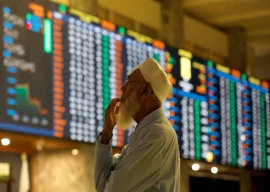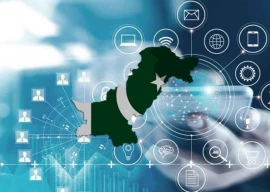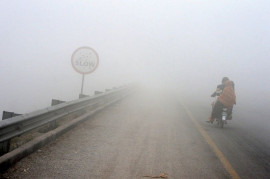
In the early part of the decade, the government began to restructure the company in an effort to sell it off. It hired Citigroup and JP Morgan as its advisers in the transaction. Through a series of complicated financial manoeuvres, the company began to show a profit, declaring a net income of Rs6.5 billion during the fiscal year ended June 30, 2005. But the turnaround was something of a chimera.
The government had agreed to take on the liabilities for the voluntary separation scheme (VSS), the plush retirement packages it has to promise to employees of government-owned corporations for leaving without getting violent. This became a bone of contention during the litigation subsequent to the closure of the transaction and caused the Supreme Court to suspect malfeasance and nullify the transaction.
It is entirely possible that the transaction was less than entirely above board. Yet the steel mill is such colossal loss-making machine that getting it off the government’s books at any cost is worth it, if for nothing else than the fact that the government will no longer have to finance expensive bailouts like Friday’s package, which is only the most recent in a long line of taxpayer-financed bailouts for the company. Getting Rs0 for the company is better than having to pay Rs25 billion. That much is an undeniable, mathematical fact.
In 2005, the government was still able to muster a $362 million bid for the company. It is likely to get far less now, if at all a positive sum. Indeed, giving the amount of opacity surrounding Pakistan Steel Mills’ finances, it would not be surprising if any bidder, in doing their due diligence, decided to ask the government for money to take it off their hands.
The liabilities of the company are not just those present on its balance sheet. The corruption of both its management as well as its workforce is by now a well-documented phenomenon. Any new management would have to spend billions just to get these people to leave and to hire new employees. As of right now, getting zero for PSM looks like a best-case scenario.
Published in the Express Tribune, June 13th, 2010.
1734689719-0/jlo-diddy-(3)1734689719-0-405x300.webp)
1734954517-0/Untitled-(90)1734954517-0-165x106.webp)

1734953966-0/Untitled-(89)1734953966-0-165x106.webp)
1734953256-0/blake-justin-(1)1734953256-0-165x106.webp)
1734951821-0/Copy-of-Untitled-(88)1734951821-0-270x192.webp)

1734899716-0/image-(15)1734899716-0-270x192.webp)








1734778885-0/Untitled-(10)1734778885-0-270x192.webp)






COMMENTS (3)
Comments are moderated and generally will be posted if they are on-topic and not abusive.
For more information, please see our Comments FAQ